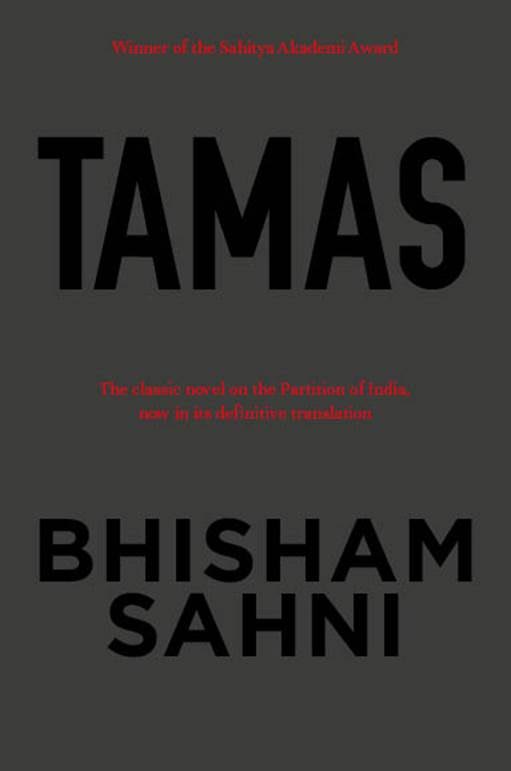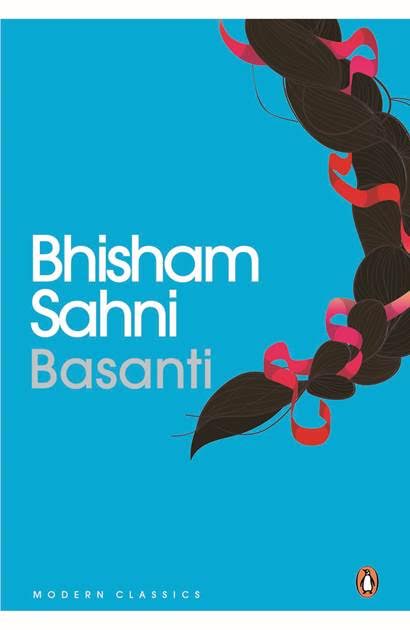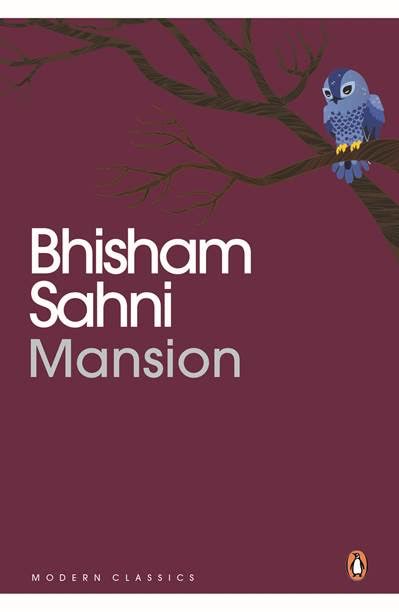 Bhisham Sahni (1915–2003) was an iconic writer who transformed the landscape of Hindi literature. Sahni was fluent in several languages—Punjabi, Hindi, Sanskrit, Urdu and English—and his oeuvre encompassed a wide range of literary forms: novels, short stories, plays, essays. Tamas, his best known novel, won the Sahitya Akademi Award in 1975 and was subsequently adapted into a National Award–winning film by Govind Nihalani. His other well-known novels include, among others, Jharokhe (published in Penguin Classics as Boyhood), Basanti and Mayyadas Ki Marhi (published in Penguin Classics as Mansion).
Bhisham Sahni (1915–2003) was an iconic writer who transformed the landscape of Hindi literature. Sahni was fluent in several languages—Punjabi, Hindi, Sanskrit, Urdu and English—and his oeuvre encompassed a wide range of literary forms: novels, short stories, plays, essays. Tamas, his best known novel, won the Sahitya Akademi Award in 1975 and was subsequently adapted into a National Award–winning film by Govind Nihalani. His other well-known novels include, among others, Jharokhe (published in Penguin Classics as Boyhood), Basanti and Mayyadas Ki Marhi (published in Penguin Classics as Mansion).
Sahni also wrote numerous short stories (a selection of which has been published in Penguin Classics as Middle India), six plays and a biography of his brother, the eminent film and stage actor Balraj Sahni. His autobiography, Aaj Ke Ateet, is published in Penguin Classics as Today’s Pasts.
Born in Rawalpindi, Sahni later went to college in Lahore. In his youth he became involved with the Indian People’s Theatre Association as well as the Indian National Congress. After Partition, he settled down in Delhi and began to teach at Delhi University. From 1957–63, he was in the USSR to work as a translator at the Foreign Languages Publishing House, before returning to Delhi. He edited the literary journal Nayi Kahaniyan from 1965–67, and was the general secretary of the All-India Progressive Writers’ Association from 1975–85.
Sahni was awarded the Padma Bhushan in 1998, and the Shalaka Samman, the Delhi government’s highest literary prize, in 1999.
In honour of Bhisham Sahni’s birth centenary, Penguin presents Tamas, translated by Daisy Rockwell, Boyhood, translated by Anna Khanna, Basanti, translated by Shveta Sarda and Mansion, also translated by Shveta Sarda.

Tamas
In a city in undivided Punjab, Nathu, a tanner, is bribed to kill a pig. When the animal’s carcass is discovered on the steps of the local mosque the next morning, simmering tensions explode into an orgy of bloodlust. As the carnage ensues, ordinary lives are dramatically upturned: The women of a Sikh village resolve to make the ultimate sacrifice when faced with imminent death at the hands of an advancing mob; an elderly couple undertakes a perilous journey when the one place they call home is no longer safe for them; and wracked with guilt, Nathu must come to terms with his unwitting role in instigating the violence. Yet, despite the darkness of the times, rare moments of unexpected friendship and love also surface.A timeless classic about the Partition of India, Tamas is also a chilling reminder of the consequences of religious intolerance and communal prejudice. Daisy Rockwell’s fresh and definitive translation expertly renders the power and passion of this iconic and award-winning novel for a new generation of readers.
The Translator:
Daisy Rockwell is a renowned artist, writer and translator. She paints under the alias Lapata (Urdu for ‘missing’) and has shown her artwork widely. She has a PhD in South Asian literature and has written extensively on literature and art. Most recently, she translated Upendranath Ashk’s Falling Walls to widespread acclaim.
Boyhood
In a bustling town in Punjab before the Partition, a sickly but restless child is constantly thwarted by his mother’s anxious need to coddle him at home. When not being punished for using foul language, he is fighting with his siblings or being teased by the servant. As time passes and his curiosity about the wider world deepens, he discovers that his father is not invincible, that his long-held derision of girls has vanished with the first bloom of sexual longing and that the playground battles of old are no match for life’s cruelties. Boyhood is a haunting portrait of the inescapable agonies and unfathomable desires of childhood.
The Translator:
Anna Khanna completed her master’s from Glasgow University in French and German literature and language with additional subjects in the fine arts. On coming to India, she taught both French and English literature and language at the British School in Delhi, where she became deputy headmistress. She also taught at the American School, Alliance Francaise and at Lucknow University.
Her book reviews and articles on design and culture have been published in leading newspapers. Prior to her English translation of the novel Jharokhe (published in Penguin Classics as Boyhood), done in consultation with the author, she had translated and published a number of short stories by Bhisham Sahni.
 Basanti
Basanti
The braid of young Basanti’s life thickens with time. Feisty and fearless, she plays hide-and-seek with her overbearing father, dodges the crippled old tailor to whom she’s sold and elopes with a handsome young man. Unwilling to let anyone suppress her spirit, she even rejects the benevolence of Shyama bibi—her confidante and employer. With the thunderous clap of the demolition of a basti in Delhi, renowned writer Bhisham Sahni gives voice, laughter and resolve to a persona that might otherwise have coursed silently away through the veins of this megacity.
The Translator:
Shveta Sarda is the translator of Trickster City (Bahurupiya Shehr) by Azra Tabassum et al. (Penguin Books India, New Delhi, 2010), co-editor of Cybermohalla Hub(Sternberg Press, Berlin, 2012), and editor of With an Untimely Calendar (National Gallery of Modern Art, New Delhi, 2014). Between 2001 and 2013, during her time at Delhi’s creative adventure called Sarai, she worked with writers and practitioners in working-class neighbourhoods across the city.
 Mansion
Mansion
Magnificent in scope and intensely moving, Mansion spans the long years between the fall of the Khalsa regime and the turbulence of the British Raj. Innumerable characters populate these pages: from the wily Diwan Dhanpat Rai to the idealistic Lekhraj; from innocent Rukmo to outspoken Bhagsuddhi. Men and women shape their worlds, lose their grip and footholds, and become adrift in the fierce vortices of unforeseen events. But for the Diwan’s mansion itself, each event is only a passing moment in the town’s colourful history. Ambitious and elegant, Mansion is a gripping tale about power: its arrogance and spectacle, and the many claimants and renouncers who desire or fear it.
For more details please write to vtanwar@penguinrandomhouse.in





